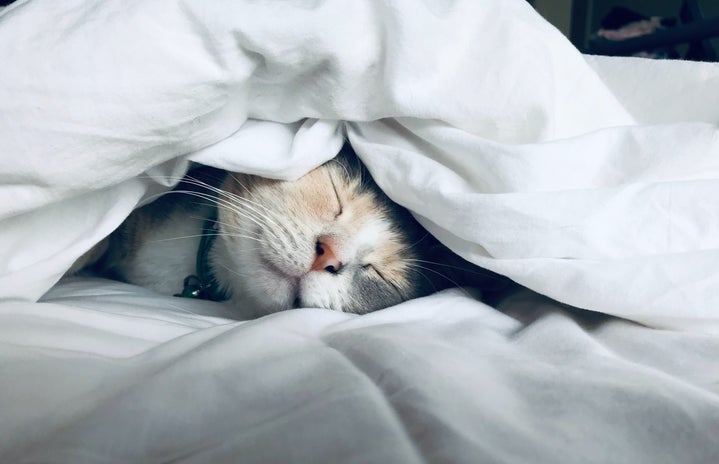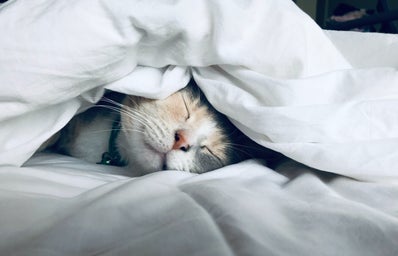Edited by: Oishiki Ganguly
No, this isn’t a joke. Yes, this article truly does exist.
Cats took over the internet in the 2000s and they continue to hold incomprehensible power over us through stupidly cute content on r/IllegallySmolCats. While this form of cat fanaticism exists, the dislike for cats is starker than before and has been fueled by decades of misrepresentation. Hear me out.
Why do we see many of our (favorite) antagonist’s being associated with cats? (The following list is anything but exhaustive).
- Tom in Tom & Jerry
- Lucifer, the evil step-mother’s pet in Cinderella
- Gargamel’s wiser, shrewder ginger companion Azrael (The Smurfs)
- Literally every witch’s cat in every movie about a witch
- Filch’s Mrs Norris in the Harry Potter series
- Mittens in Bolt (while the audience eventually learns to love Mittens she is portrayed as a dirty, menacing cat with questionable ‘morale’—why we impose human constructs of morale to animals could be an entirely different argument)
- Every movie in the Cats & Dogs franchise
Are Cats Evil?
The behaviour of a cat is characteristically very similar to that of humans. They value privacy, socialise merely as a necessity, and each of them has a unique personality. Most importantly, they provide the clearest lesson on consent. The only instances when they viciously attack you is when you approach them unexpectedly. When we find this trait of cats to be exhausting or ‘evil’, it says more about us as humans than it does about them. Could it be that the poor representation of cats is provoked by our constant need for incessant affection from a pet? Is the similarity between a cat and ourselves a threat to restrain?
Cats and their Domestication of the Human
Cats were never meant to be domesticated. Instead, they have, as CNN puts it, “a mysterious power over humanity’. Unlike dogs they aren’t the type that comes running to you after a long day, instead, you go to them hoping to snuggle for a while. That moment when your cat voluntarily jumps into bed with you and chooses to lie on top of you is, without exaggeration, a blessing.
It’s expected of humans to dislike this vulnerability on their part. For years dogs have been upheld as ‘man’s best friend,’ and have generally been at our disposal. From helping in hunts, grabbing the newspaper to being obliging enough to let us handle them at any hour of the day, they have been the easiest to control. It’s also interesting to ask ourselves why cats are not trained to perform tricks to amuse us as often as dogs are. In contrast to dogs, cats are the best thing that happened to human ego given how much those whiskered little creatures bruise it.
Cats, Luck, and Gender
As though cats weren’t bad enough, there is an inexplicable fear/hate of black cats. The grounds of this historical belief that black cats equals bad luck is something to unpack.
The supernaturality (which was not always daunting) around cats can be traced back to a cute Scottish lore that fairy cats had the ability to turn into witches. These were ‘friendly’ cats who looked for treats on Halloween, and the black ones were especially known to bring wealth to the household. Ancient Egypt pronounced death penalties to anyone who killed cats as they saw them as beings that held divine properties.
It was possibly around the 17th century however, when black cats began to be seen as unlucky creatures. Animals in general, being perceived as animal familiars, were often subject to brutality under the ether of the witch trials in 17th century America and Europe. This was so widespread that stories of animal guides and protectors were deliberately omitted from English folklore. The Scottish association of cats with witches was a convenient leverage for Puritans in Middle Age America during the Salem witch trials to execute women who owned cats. Ever since women were compared to witches, and witches to black cats, the superstitions around black cats developed a dark (pun intended) turn.
Why did you spend five minutes reading an article about cats?
Because cats matter. While this piece may read as though it was written by Kitty Galore herself, some questions remain for us to ask ourselves. Why is cat culture popularly associated to queer women? Why do we use “pussy” for analogies that have no apparent correlation with cats?
I wait for the day cat lovers get commercial content that doesn’t villainize cats nor one that cat-baits us. Meanwhile I hope that you, dear reader, rethink every movie you thought you liked, and imagine the layers of stereotypes that went behind the representation of certain characters. Apply the same empathy to these fluff balls that bring our moms so much joy from Facebook. Also, the next time you say you see a cat, consider how they most hauntingly hold a mirror up to human kind, and resemble everything humans tend to struggle to fathom.


